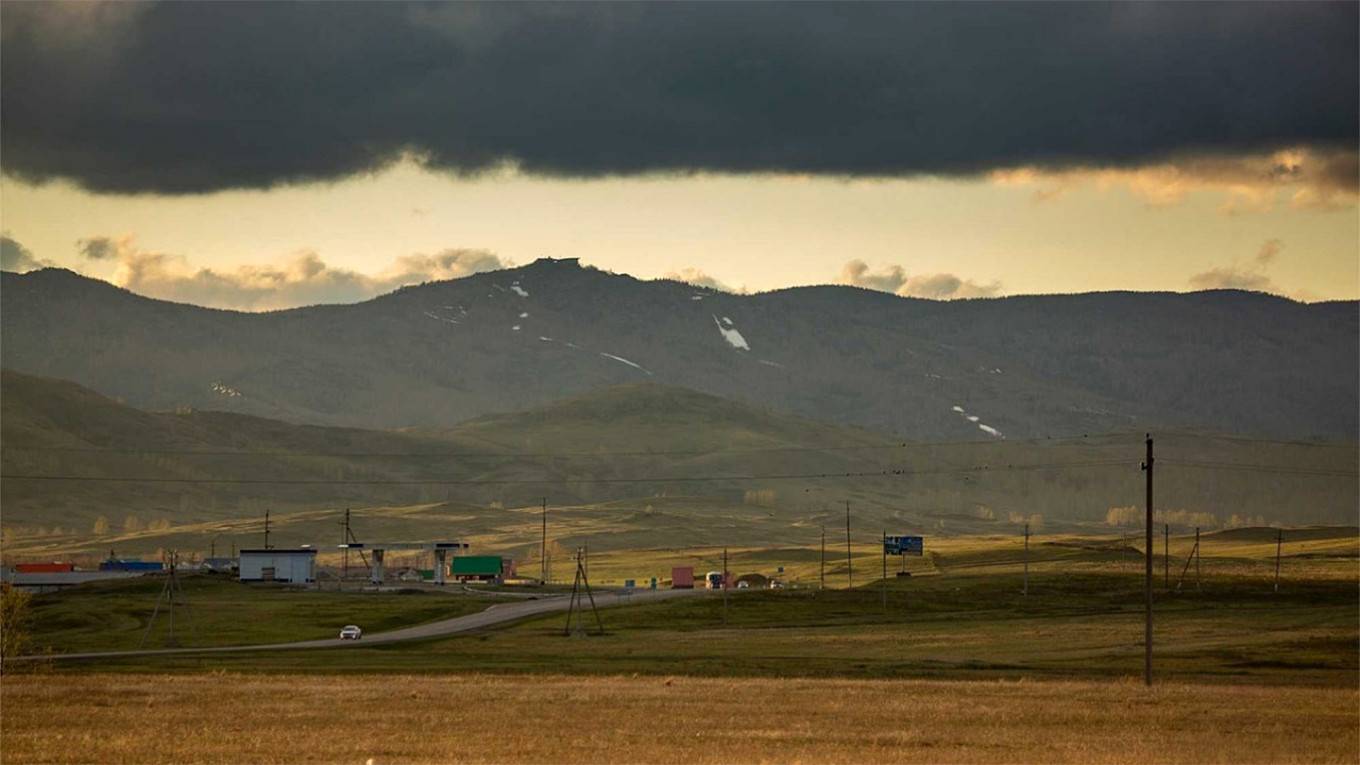Public dissatisfaction is simmering in Bashkortostan, a republic in Russia, regarding a government-endorsed initiative to exploit copper mining resources in the Kryktytau mountain range.
These renewed tensions arise in the wake of last year’s unprecedented protests and extensive repressions in wartime Russia, which were notable in Bashkortostan. While government officials and supportive bloggers promote the supposed advantages of copper mining for the local economy, residents appear willing to face repression and arrest to safeguard their beautiful Indigenous lands from irreversible ecological harm.
The Kryktytau mountain range, known in Bashkir as Qyrqty-tau and extending 60 kilometers, is located in the eastern districts of Abzelilovsky and Beloretsky. This segment of the Ural Mountains flanks the Bolshoi Kizil (Olo Kyzyl) river, offering a stunning landscape that makes it one of the most desirable locations for outdoor tourism in the region.
Rich in copper resources, the range has long attracted interest from the Russian Copper Company (RCC), a mining conglomerate owned by Igor Altushkin, a billionaire listed by Forbes, who faces Western sanctions for his support of Russia’s invasion of Ukraine.
Reports about RCC’s intentions to extract copper from Kryktytau first emerged in February 2019, leading to a public petition urging President Vladimir Putin to stop the operations and revise the federal legislation on mineral extraction licensing.
Environmental advocate Eduard Kadyrov, who started the petition that garnered over 7,000 signatures, warned that mining activities in Kryktytau could release toxic waste into the Bolshoy Kizil and Maly Kizil rivers, which provide drinking water for the nearby town of Sibay and the industrial city of Magnitogorsk.
Kadyrov also expressed concerns about potential contamination of Lake Yaktykul, a significant tourist attraction and a protected natural monument.
Following a massive protest of around 3,000 people in Askarovo, the capital of Abzelilovsky district, in September 2020, RCC’s plans seemed to be postponed. This protest was influenced by previous victories in defending the sacred Kushtau mountain from corporations engaged in extractive activities.
However, in April of this year, Salavatskoe, a company associated with RCC, announced that it had received a license for exploration and mineral extraction at Kryktytau near the rural area of Salavat-sovkhoz.
In a video message shared on Salavatskoe’s VKontakte page, the company’s director, Tagir Bakhtigareev, indicated that preparatory work and final approval for mining could take “several years” and would include “presenting the final work plan to residents and conducting public hearings.”
“Crucially: the license for this activity has been granted by federal authorities. Any moves toward appealing to the republic’s government about this project would be seen as politicization,” Bakhtigareev cautioned, committing to “develop a project that adheres to the strictest environmental standards.”
He also downplayed environmental activists’ fears of irreparable river pollution as “baseless,” citing the company’s past experience with similar projects in the heavily polluted Chelyabinsk region.
Nevertheless, his assurances have done little to quell the rising discontent among residents in the Abzelilovsky district as well as notable environmental and Indigenous rights activists, who suspect that mining could commence much earlier than claimed.
“Whether compliant with environmental standards or not… we simply don’t want… a mine. We need nature, we need health,” a local woman from Burangulovo stated during a public meeting with representatives from Salavatskoe, prompting enthusiastic applause from attendees.
“I’m aware that this meeting is merely a formality. All who are here and voice their concerns will face repercussions from the authorities,” another woman passionately declared in the Indigenous Bashkir language.
“I have one question: is your greed so strong that you are willing to destroy this land for profit? Aren’t you afraid of the curse of the people you intend to harm?” she added, earning another round of applause.
The locals’ worries about potential “harassment” by the authorities are justified. Protests last year supporting Indigenous activist Fayil Alsynov—whose imprisonment was linked to opposition against gold mining in Bashkortostan—triggered the largest political trial in contemporary Russian history.
This incident was accompanied by a widespread smear campaign against activists and their allies, and the detention of over 80 Bashkir individuals in the so-called “Baymak case” created a climate of fear among many in the republic and emboldened authorities to reintroduce previously unpopular mining plans for Kryktytau.
Some defenders of Kryktytau are already experiencing the pressure. The founder of a popular online group defending the mountains was interrogated by police last month, according to RFE/RL’s Idel.Realii, based on reports from within the group.
“The authorities have realized that there is a substantial number of individuals [in this group], which they view as a potential threat—they fear it could lead to a sort of ‘uprising,’” a post within the closed group stated, as reported by Idel.Realii.
On Thursday, activists announced the cancellation of scheduled protests in support of Kryktytau without giving an official reason for the change. At least 300 participants were anticipated to join the rally near Kazmashevo and Amangildino in the Abzelilovsky district.
While the protests supporting Alsynov last year saw a broad array of public figures unite against the authorities, in the case of Kryktytau, the government and its supporting developers seem to have outpaced activists by securing endorsements from many popular local bloggers and influencers.
“The Russian Copper Company… adeptly garners public favor for its operations,” political commentator Ural Baybulatov remarked in a Telegram post.
“Even you, dear followers, environmental advocates, and other concerned citizens of Bashkortostan are inadvertently aiding this PR initiative by liking, commenting, and sharing [content in favor of the mining project],” he said, referring to a series of videos by popular Bashkir bloggers promoting the economic merits of copper mining.
While most experts concur that the eastern regions of Bashkortostan suffer from economic underdevelopment and poverty, many contend that a prosperous future could be achieved without resorting to mining.
“For many years, private enterprises have been extracting natural resources in the Urals of Bashkortostan in a predatory fashion, leaving behind approximately 2 billion tons of mining waste, rivers and lands contaminated with heavy metals, and unreclaimed open pits, which are the ‘wounds of the Earth,’” ecologist Alexander Veselov noted on VKontakte.
“Simultaneously, this segment of the republic remains economically stagnant, with minimal industrial development beyond mineral extraction,” he added. “Thus, perhaps what Bashkortostan’s Urals truly requires is a government initiative for land rehabilitation, rather than new open-pit mines.”

